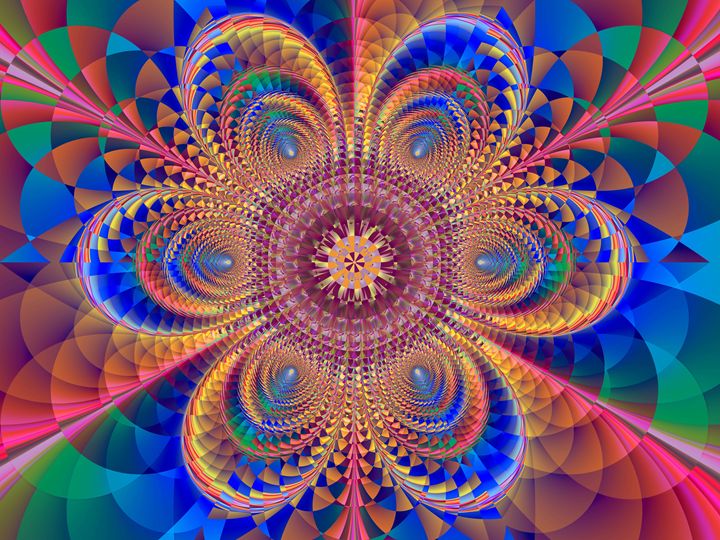Psychedelic Assisted Therapy
Therapy for Healing & Awakening - in Boulder & Denver CO
Life Transitions
Therapy for life transitions in Boulder, CO
Psychedelic-Assisted Therapy: A Revolution in Mental Health Treatment

Psychedelic-assisted therapy (PAT) is transforming the landscape of mental health treatment, offering powerful and long-lasting relief for a range of conditions. This therapeutic approach combines the administration of psychedelic substances in conjunction with an ongoing human centered psychotherapy that is specifically customized for you, providing patients with profound emotional and psychological breakthroughs that traditional treatments often fail to achieve. As research progresses, PAT is gaining recognition as a legitimate and highly effective method for addressing conditions such as depression, anxiety, post-traumatic stress disorder (PTSD), and addiction.
The Science Behind Psychedelic-Assisted Therapy
Psychedelics work by altering brain function in ways that promote neuroplasticity, emotional release, and introspection. Studies using neuroimaging have shown that substances like psilocybin, MDMA, and LSD reduce activity in the brain's default mode network (DMN), a region associated with self-referential thinking and rigid mental patterns (Carhart-Harris et al., 2014). By quieting the DMN, psychedelics allow for a dissolution of the ego, leading to heightened awareness, increased emotional processing, and new perspectives on personal challenges.
Moreover, these substances promote the growth of new neural connections, enhancing cognitive flexibility and emotional resilience. Research from Johns Hopkins University found that a single high-dose psilocybin session resulted in sustained reductions in depression and anxiety in patients with life-threatening cancer diagnoses (Griffiths et al., 2016). These findings highlight the extraordinary potential of PAT to deliver deep and enduring psychological healing.

Popular Types of Psychedelic-Assisted Therapy
Several psychedelic substances have been studied extensively for their therapeutic benefits. Each one offers unique properties and applications:
Ketamine-Assisted Therapy
Ketamine, originally used as an anesthetic, has emerged as a rapid-acting treatment for severe depression. Unlike traditional antidepressants that can take weeks to produce effects, ketamine often delivers relief within hours. Studies have shown that ketamine therapy is particularly effective for treatment-resistant depression, with many patients experiencing substantial mood improvements after a single session (Berman et al., 2000). Ketamine clinics are becoming increasingly accessible, making this form of PAT widely available to those struggling with depression and suicidal ideation.
Psilocybin-Assisted Therapy
Psilocybin, the active compound in psychedelic mushrooms, has demonstrated remarkable efficacy in treating major depressive disorder, existential distress, and addiction. A groundbreaking study published in
JAMA Psychiatry
found that psilocybin therapy led to "clinically significant" reductions in depression symptoms in over 70% of participants, with effects lasting for months after treatment (Davis et al., 2020). Unlike traditional antidepressants that require daily administration, psilocybin therapy often involves only one or two guided sessions, providing long-term relief with minimal ongoing intervention.
MDMA-Assisted Therapy
MDMA, commonly known as "ecstasy" or "molly," is proving to be one of the most effective treatments for PTSD. A series of Phase 3 clinical trials led by the Multidisciplinary Association for Psychedelic Studies (MAPS) found that MDMA-assisted therapy significantly reduced PTSD symptoms, with 67% of participants no longer meeting the diagnostic criteria for PTSD after just three sessions (Mitchell et al., 2021). MDMA enhances feelings of empathy and emotional safety, allowing patients to process traumatic memories without being overwhelmed by fear and anxiety.
The Therapeutic Process
Psychedelic-assisted therapy is not simply about taking a psychedelic substance; it is a structured therapeutic process that includes three key phases:
Preparation:
Patients work with trained therapists to set intentions, discuss past traumas, and establish trust. This phase is crucial for ensuring a safe and meaningful experience.
The Psychedelic Session:
During the session, the patient takes the psychedelic under the supervision of therapists in a comfortable, supportive environment. The experience often lasts between four and eight hours, depending on the substance used. Patients may engage in guided introspection, listen to music, or remain silent as they navigate their inner world.
Integration:
After the session, patients participate in integration therapy, where they reflect on their experiences and develop strategies for applying insights to their daily lives. Integration is essential for maximizing the long-term benefits of PAT.
The Future of Psychedelic-Assisted Therapy
The momentum behind PAT is growing rapidly, with regulatory bodies recognizing its therapeutic potential. The U.S. Food and Drug Administration (FDA) has granted "breakthrough therapy" designation to psilocybin and MDMA, fast-tracking their approval process for clinical use (FDA, 2021). As legalization efforts progress, more patients will gain access to these revolutionary treatments.
In addition, ongoing research is exploring new applications for psychedelics. Studies are investigating their efficacy for conditions such as obsessive-compulsive disorder (OCD), eating disorders, and chronic pain. Some researchers are even exploring the potential of microdosing—taking sub-perceptual doses of psychedelics—to enhance creativity, focus, and emotional well-being.
Conclusion
Psychedelic-assisted therapy is poised to revolutionize mental health treatment, offering profound healing that traditional approaches often fail to achieve. Backed by rigorous scientific research and growing clinical evidence, PAT provides rapid, transformative relief for conditions such as depression, PTSD, and addiction. With increasing public and institutional support, psychedelic therapy is transitioning from the fringes of alternative medicine into the mainstream, promising a new era of mental health care that prioritizes deep healing and personal growth.
As research continues and accessibility expands, PAT has the potential to redefine how we approach psychological well-being. The question is no longer
if
psychedelic therapy will become a standard treatment option but
when
it will be widely available to those who need it most.
References
Berman, R. M., Cappiello, A., Anand, A., et al. (2000). Antidepressant effects of ketamine in depressed patients. Biological Psychiatry, 47(4), 351-354.
Carhart-Harris, R. L., Muthukumaraswamy, S., Roseman, L., et al. (2014). Neural correlates of the psychedelic state as determined by fMRI studies with psilocybin. PNAS, 111(23), 6483-6488.
Davis, A. K., Barrett, F. S., May, D. G., et al. (2020). Effects of psilocybin-assisted therapy on major depressive disorder. JAMA Psychiatry, 78(5), 481-489.
FDA (2021). FDA grants breakthrough therapy designation to psilocybin and MDMA. U.S. Food and Drug Administration.
Griffiths, R. R., Johnson, M. W., Carducci, M. A., et al. (2016). Psilocybin produces substantial and sustained decreases in depression and anxiety in patients with life-threatening cancer. Journal of Psychopharmacology, 30(12), 1181-1197.
Mitchell, J. M., Bogenschutz, M., Lilienstein, A., et al. (2021). MDMA-assisted therapy for severe PTSD: A randomized, double-blind, placebo-controlled Phase 3 study. Nature Medicine, 27, 1025-1033.
Palhano-Fontes, F., Barreto, D., Onias, H., et al. (2019). Rapid antidepressant effects of the psychedelic ayahuasca. Scientific Reports, 9(1), 12342.

I would love to help you build a life that brings you happiness and fulfillment. Anxiety, depression, unhealthy relationships, loneliness; this doesn’t have to be your normal; you can make positive change.
Reach out to me today to schedule a free 15 minute consultation.
I hope to hear from you.
About Me
We are a therapy practice offering relationship therapy and counseling services in Boulder & online throughout Colorado.
Licensed Provider
Julian Royce MS, LPC.
#76277 Licensed Professional Counselor


Relationship Therapist in Boulder
Important Notices
Good Faith Estimate
Get in Touch
1135 Pearl St #207, Boulder, CO 80302, USA